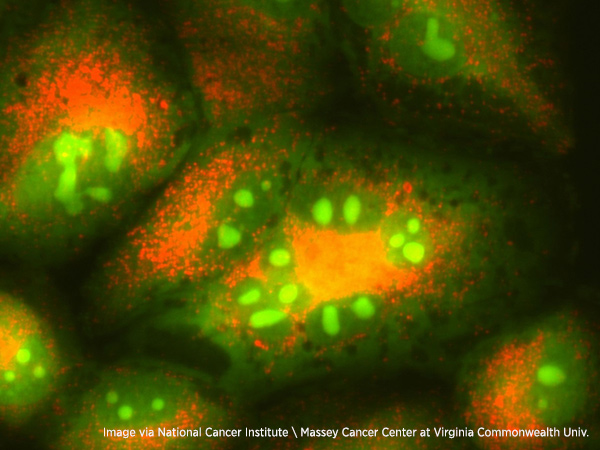A New Targeted Therapy and Diagnostic Test for Advanced Lung Cancer
The FDA granted accelerated approval to a new targeted therapeutic and companion diagnostic test for certain adult patients with lung cancer.
The U.S. Food and Drug Administration (FDA) granted accelerated approval to mobocertinib (Exkivity) for certain adult patients with locally advanced or metastatic non-small cell lung cancer (NSCLC), the most common form of lung cancer. The approval is for patients whose tumors carry a specific type of mutation in the epidermal growth factor receptor (EGFR) gene.

EGFR mutations are the most common mutations in NSCLC and cause uncontrolled cell growth and division, promoting tumor development. Mobocertinib is an oral kinase inhibitor that helps prevent cancer cells from growing and may kill them by selectively targeting mutant EGFR proteins produced as a result of specific mutations called exon 20 insertions, the third most common type of EGFR mutations. These mutations are detected by the Oncomine Dx Target Test, a companion diagnostic device the FDA approved together with the new targeted therapeutic.
The accelerated approval of mobocertinib was based on data from an international, non-randomized, open-label, multicohort clinical trial.
The study evaluated the drug’s efficacy in 114 patients carrying EGFR exon 20 insertion mutations whose disease had progressed during or after treatment with platinum-based chemotherapy. The overall response rate was 28 percent, with a median response duration of 17.5 months.
The approval included a boxed warning on the product label for potential side effects involving the heart, interstitial lung disease, lung inflammation, and diarrhea.
Lung cancer is the leading cause of cancer death in the U.S. and worldwide. NSCLC accounts for more than 80 percent of all lung cancers. It was estimated that 235,760 new cases would be diagnosed in the U.S. in 2021.
The FDA decision was rendered on September 15, 2021. Accelerated approval means continued approval may be contingent upon a confirmatory trial.
